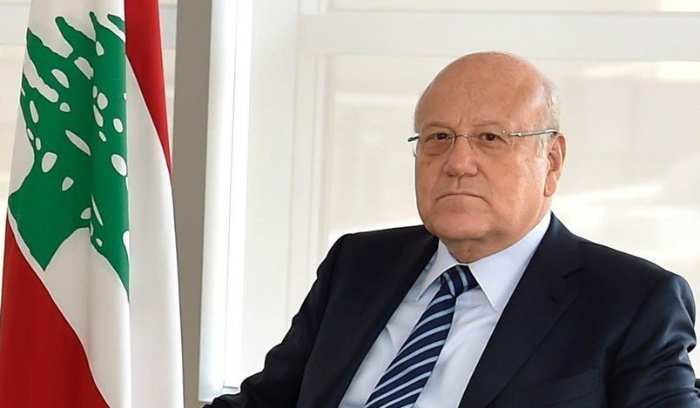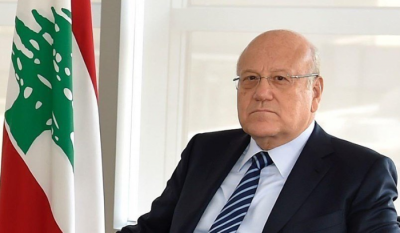Informed sources anticipate that the results of Prime Minister Najib Mikati's visit to Qatar, including the meetings and discussions he held, will be up for discussion in the coming days. These results are described as a new milestone in the process of restoring Lebanon's relationships with Gulf countries and reintegrating the country into the Arab fold, following a period of tensions and estrangement.
While information regarding any meeting Mikati had with Saudi officials in Doha is lacking, the most notable encounter was with the Emir of Qatar, Sheikh Tamim bin Hamad Al Thani, and his meeting with Qatari Minister Sheikh Khalid bin Khalifa bin Abdulaziz Al Thani. Mikati conveyed from the Emir of Qatar that the Qatari Foreign Minister will visit Beirut to personally understand the needs Lebanon is requesting. He stressed, "Lebanon needs Arab support," adding that he will visit several Arab countries, emphasizing, "We have no choice but to cooperate with the International Monetary Fund to put Lebanon on the path to recovery." He stated, "Lebanon always requires such Arab care, and Qatar stands with Lebanon. God willing, all Arab countries, especially the Gulf states, will restore their normal relations with Lebanon, and we need this Arab embrace for our homeland."
### Arab Presence
Additionally, diplomatic sources indicated that the development regarding the Gulf countries' enhancement of their diplomatic presence in Lebanon will not happen overnight. Instead, it is linked to two internal and external pathways:
- The first path involves Prime Minister Najib Mikati's commitment not to allow Lebanon to become a platform for targeting Gulf countries. He has acted based on this principle in government statements and stances, which have received praise from Saudi Arabia. Thus, without Mikati's strict adherence to an agenda that denounces any aggression against the Kingdom of Saudi Arabia and insists on maintaining good relations with it and the Gulf countries, the path for Gulf return would not have been paved.
- The second path is external, led by three capitals: Washington, Paris, and Cairo, which have worked to convince Riyadh of the necessity to reactivate its presence in Lebanon to maintain the external balance of power favoring the Arab and Western blocs at the expense of Iranian influence. Tehran will fill any void resulting from a Gulf withdrawal or distancing; hence, allowing the Lebanese arena to fall into Iranian hands is not beneficial.
The efforts of the American, French, and Egyptian tripartite alliance have borne fruit in persuading Saudi Arabia to reconsider its stance on Lebanon, based on the premise that distancing from it strengthens Iranian presence, whereas getting closer would rein it in. It is crucial to adopt a policy of conflict linkage with Iran and confuse it in Lebanon rather than ease its position.
The tripartite viewpoint relies on three key factors:
- The first factor is the Prime Minister's commitment to maintaining the best relations with Gulf countries and implementing all necessary measures to prevent Lebanon from being used as a platform to target them.
- The second factor is the widespread pushback from a broad segment of political forces against Iranian influence in Lebanon, which should be supported and protected rather than abandoned.
- The third factor is the need to differentiate between refusing to provide any support to the governance held by "Hezbollah" and the necessity of providing support to the Lebanese people to empower them within a resilience policy that allows them to participate in parliamentary elections to curb the ruling team's influence.
It is known that parliamentary elections enjoy significant international support, and there are international concerns that dire financial conditions may lead to public disillusionment and low voter turnout, benefiting the current authorities. This explains the timing of Riyadh's move to enhance its role, directly leading up to the elections because the emergence of a parliamentary majority supportive of Arab and international orientations would limit "Hezbollah's" scope of using legitimate cover.




